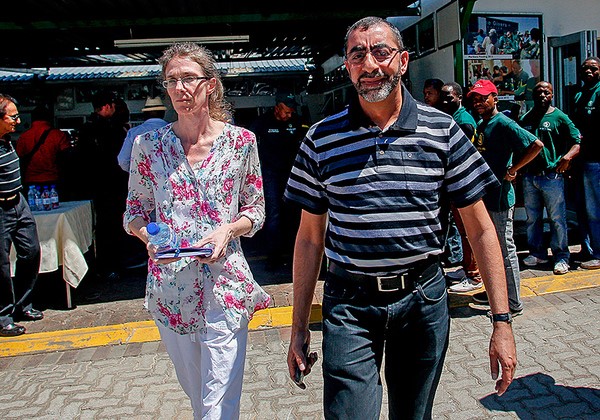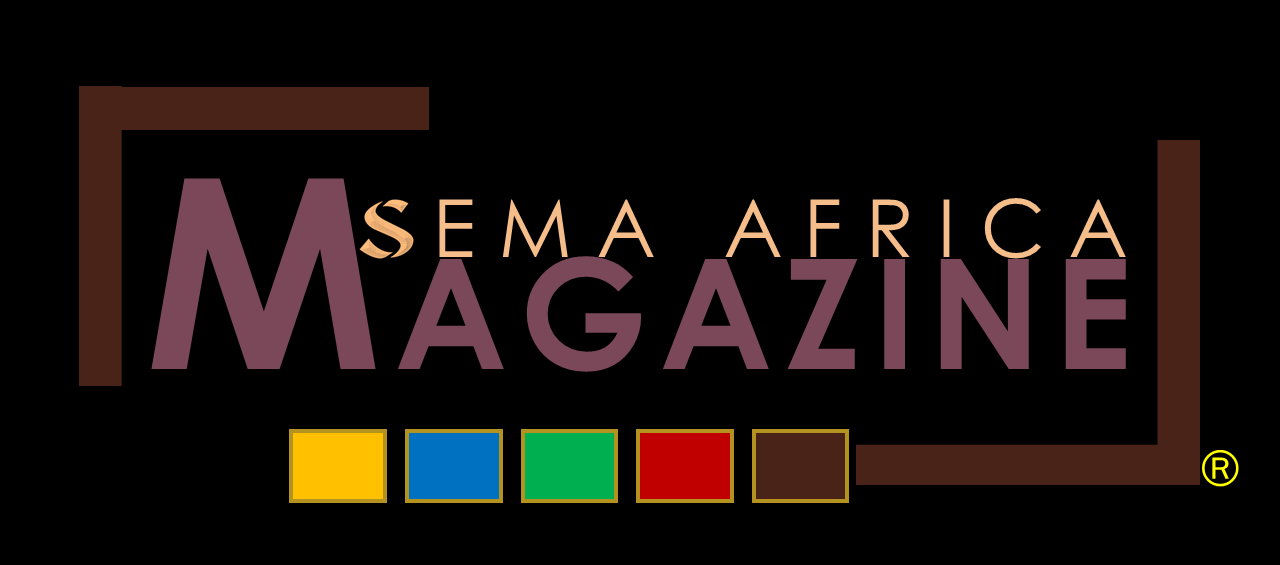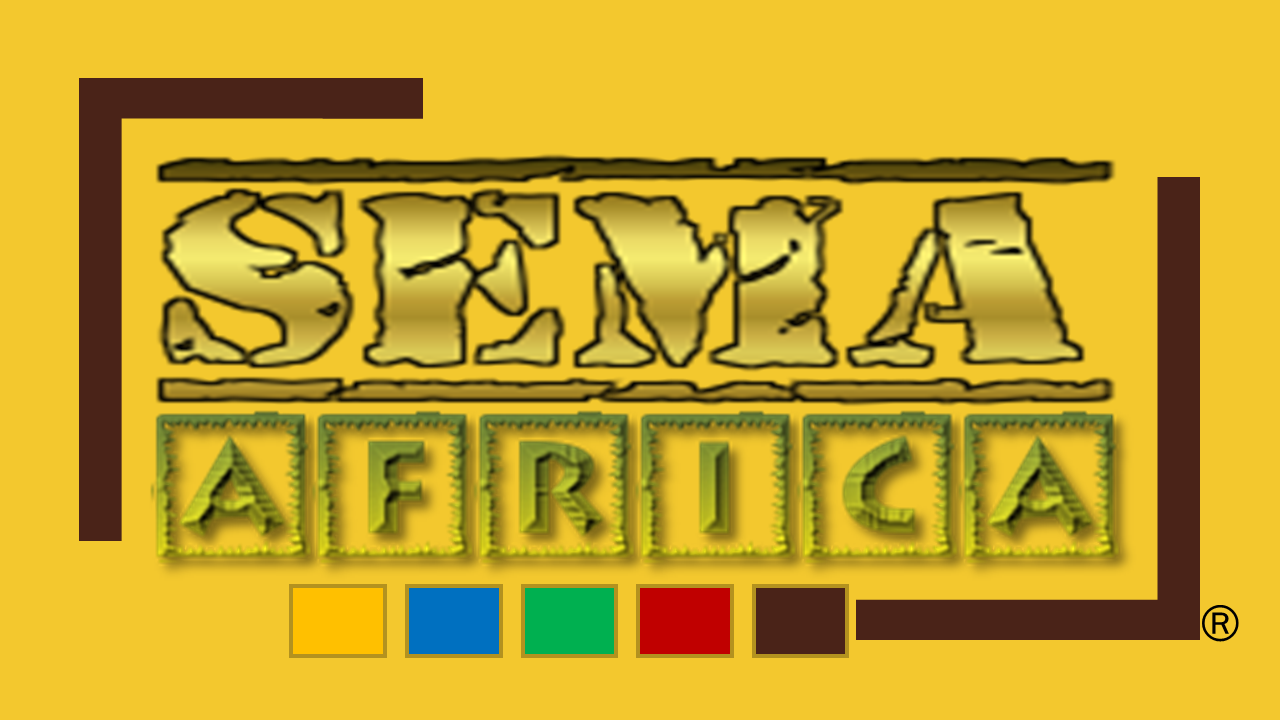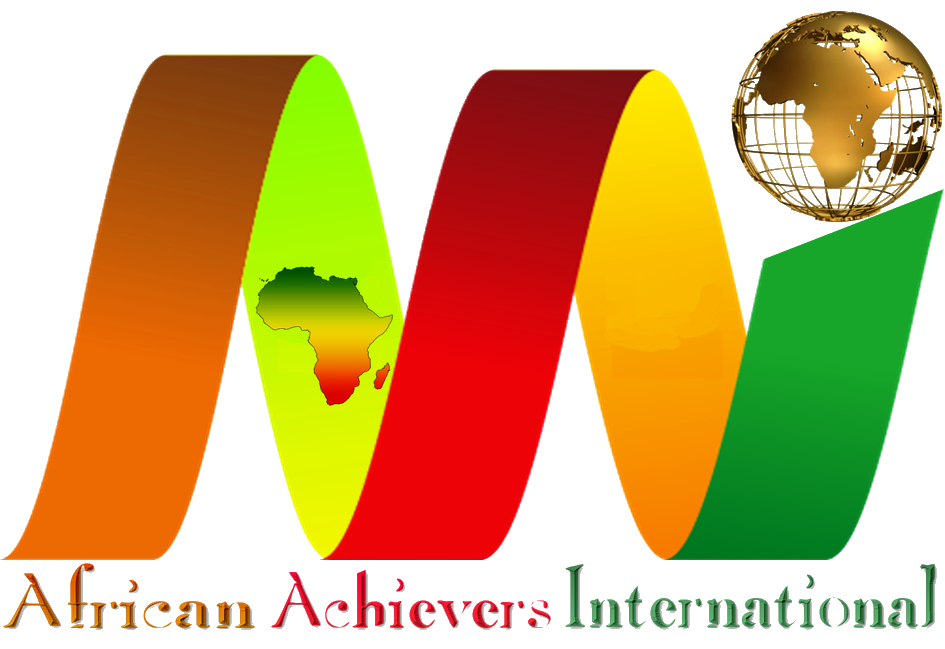But this was
different.
On Dec. 6, 2014, Sooliman,
normally a blur of movement in his green Gift of the Givers
tracksuit, was the one waiting. Three thousand miles away from the
bedroom of his Johannesburg, South Africa, home, a convoy of cars
prepared to begin a long ride into the Yemeni desert. At the end of
their drive was Pierre Korkie, a South African teacher who had been
held by Al Qaeda militants in Yemen for more than 18 months.
Sooliman and his organization had been frantically trying to broker
his release, using a tactic unlikely to appear in any hostage
negotiation handbook.
Each time Sooliman’s negotiator,
a round-faced young Yemeni journalist and aid worker named Anas
al-Hamati, had traveled to meet Mr. Korkie’s captors, he carried
with him a thick photo album documenting Gift’s extensive
charitable projects in the impoverished regions where Al Qaeda was
entrenched – food drops and water wells, donations of school
supplies, clothing, and medicines. If he could impress upon the
militants the scope of Gift’s goodwill, Mr. Hamati reasoned, maybe
they would release Pierre.
The strategy had worked before.
Nearly a year earlier, Al Qaeda had released Pierre’s wife,
Yolande, without even receiving a ransom, and now it appeared they
were poised to free him, too, for a relatively small sum. This was
to be Pierre’s last day in captivity.
The night before, Sooliman had
been on the phone with Mrs. Korkie until well after midnight, and
now, as a hot summer morning cracked over the city, he picked up
his phone again. He found Yolande’s contact information and typed
her a short text message.
“The waiting is almost over,” he
wrote. Then he got up to make himself a cup of
tea.
Two hours later, another of his
phones buzzed. It was Pierre’s uncle, his voice dull and
heavy.
What? Sooliman
asked.
Negotiating the
release of hostages is hardly Sooliman’s day job – though
it can be equally difficult to say what, exactly, is. Since he
founded Gift of the Givers Foundation in 1992, the organization’s
humanitarian relief teams have appeared in their trademark green
polo shirts at the site of dozens of disasters, famines, and
military conflicts. They have provided emergency medical and
logistical assistance in the early days of many of the past two
decades’ worst natural and man-made crises, stretching from Haiti
to Bosnia to Bangladesh.
But as in the case of the
Korkies, the group’s work also sprawls well beyond traditional
disaster relief. I first encountered the organization as a
journalist covering the aftermath of a series of deadly xenophobic
attacks in South Africa in April 2015. Behind a decrepit
Johannesburg discount mall, a small army of green-clad volunteers
had set up a small refugee camp for those who had fled their homes,
a bare but cozy tent city from which they doled out blankets,
clothing, and daily meals.
The organization runs hospitals
in Syria and soup kitchens for needy university students in
Johannesburg. There is a Gift of the Givers counselling hotline, a
Gift of the Givers trademarked meal-replacement supplement for the
malnourished, and a fleet of Gift of the Givers mobile medical
clinics. Recently, the organization assisted in bringing home 23
South Africans lured into joining Islamic State in Syria, and now
they are working on another hostage negotiation – this one in
northern Mali.
All of this places the group at
a unique intersection in the humanitarian world. In a community of
global nongovernmental organizations that often view Africa as the
planet’s sad charity case, Gift of the Givers represents an
inversion of conventional logic: An African aid group that takes
care of its own – and helps bail out the rest of the
world.
“I think we are at the beginning
of the end of the so-called development era, in which rich
countries gave aid to poor countries to help them develop,” says
Dhananjayan Sriskandarajah, secretary-general of CIVICUS, a global
network of NGOs and foundations that promote civil society. “It’s
still the case that when a disaster strikes somewhere in the world
we have a relatively small number of international groups from a
relatively small number of wealthy countries acting to intervene.
But Gift of the Givers Foundation is a great example of the future
– an African actor that plays on the global stage.”
The ascension of groups like
Gift has also provoked some existential questions about the future
of international aid work. Critics say such organizations simply
don’t play by the old rulebooks of humanitarian intervention –
often eschewing the kind of distanced neutrality that has long
governed Western aid work (at least in theory) for a more
personalized approach to relief and assistance.
“It’s not principled
humanitarian aid, it’s partial humanitarian aid,” says one
international aid worker familiar with Gift’s work, who asked not
to be named to avoid sowing conflict between groups. The aid worker
cited the case of the charity’s recent work in Syria, where local
media captured shots of Gift of the Givers volunteers with their
arms slung over the shoulders of soldiers of the Free Syrian Army,
a prominent rebel group. There’s no question for anyone looking at
Gift’s work in the country which side they are on, the aid worker
says.
“That doesn’t mean your service
is less valuable, but it does mean you can’t stand up and say
you’re a principled, impartial actor in these
situations.”
Within Gift itself, however,
there is little concern for such soul-searching. Debates on where
the organization fits into the aid world are far less important to
Sooliman, for instance, than how their work is seen by two entities
– their donors and their God.
The organization is funded
largely by South Africa’s sizable Muslim community; whose members
donate as part of the charitable almsgiving that is a core tenet of
their faith.
“Everything we do is spiritual.
It’s faith-based,” says Sooliman, whose wide glasses and
salt-and-pepper beard give him an unmistakably bookish,
grandfatherly look. “The Islamic teaching is very clear: Help
people. It’s not help black people or white people, or to help
people from this country or that country. It doesn’t say you must
feed people or unite families or free hostages. It just says help
people. It’s such a broad category, and that’s what we
do.”
Hamati says that
is the precise ethos Sooliman imparted to him when the two
first met in late 2012. Sooliman had seen a BBC report on famine in
Yemen, and as he is inclined to do, he jumped on the next flight to
Sanaa to see if Gift of the Givers should start an operation
there.
At the time Hamati was just a
friend of a friend, a journalist for the Yemeni state newspaper
whose phone number Sooliman had gotten from a local contact in
Johannesburg. But within 48 hours of Sooliman’s arrival in the
country, he had hired Hamati to run a local Gift relief
operation.
“He makes very strategic
decisions about who he puts under him, and then once he does, he
trusts those people completely,” says Shafiq Morton, a South
African journalist and the author of “Imtiaz Sooliman and the Gift
of the Givers: A Mercy to All.” Sooliman has long been known for
this kind of brusquely efficient – and highly personal – approach
to management. He rarely hires people based on cover letters or job
applications, preferring instead to select his closest associates
almost on instinct.
His style has been a source of
frustration for some who have worked with Gift. They say once
Sooliman has made up his mind on a person or project, there’s no
convincing him otherwise. But it has also earned Sooliman, who is a
medical doctor by training, many admirers.
Kristen Van Schie, a South
African journalist who has traveled on disaster relief trips to
Syria and Somalia with Gift of the Givers, told me she had never
met another person of power in a large humanitarian aid
organization who was so trusting of local knowledge and
abilities.
“He doesn’t insist on sending
‘his people’ from South Africa to run an operation,” she says. “He
trusts local people – I think as a person of color from South
Africa, he simply thinks, why wouldn’t I?” He knows firsthand,
after all, the dangers of making judgments based on appearance
about who is fit to lead.
In Yemen, too, he wasted no time
turning over the operation completely to Hamati. After they met,
Sooliman flew back to Johannesburg, leaving his new deputy to set
the agenda on the ground. And when Hamati called him a few weeks
later to ask if he could try and help free the two South African
hostages, Sooliman immediately said “yes.”
“I told him, ‘We’ve got nothing
to lose. The worst thing that can happen is we fail. But right now
no one is doing anything so we should at least try,’ ” he
says.
But there was one small
obstacle: Hamati had no idea where the hostages actually were. So
he put on his green Gift of the Givers polo shirt, emblazoned with
a South African flag and the phrase “Best among people are those
who benefit mankind,” and loaded up a Gift-branded truck with
supplies.
Then he headed out into Al Qaeda
territory. “We brought the local media with us to show what we were
doing, and everywhere we went, we showed pictures of Pierre and
Yolande,” he says. “There wasn’t any real strategy. We were just
trying to make ourselves and our intentions known to local people,
and at the same time let them know we were looking for this South
African couple.”
It worked. Six months after
Hamati and Sooliman’s call, in December 2013, Hamati got word from
the Al Qaeda cell holding the Korkies.
They wanted to talk.
Every movement has a
creation story, and when asked, Sooliman offers this
one:
On a Thursday in August 1992, an
impressionable young South African doctor walked into the Istanbul
mosque of Sheikh Saffer Effendi al-Jerrahi, a Sufi mystic. The
sheikh turned to him and began speaking in Turkish, a language
Sooliman did not speak. But that day, he says, by some miracle, he
understood every word.
“My son,” the man said, locking
eyes with his new protégé. “I’m instructing you. You will form an
organization. The name will be Waqfu’l Waqifin” – a phrase whose
direct translation is “the gift of the givers,” though its actual
meaning is something closer to “those who are blessed must
give.”
The sheikh also had a warning
for Sooliman: “Don’t expect anything in return, not even
gratitude.”
But if the organization was born
spiritually that day in Turkey, it came of age somewhere else
entirely – in a scrappy young democracy in Southern Africa, at a
moment when the country was thinking radically anew about whose
lives mattered, and how much. The founding of Gift of the Givers
was sandwiched between Nelson Mandela’s release from prison and the
country’s first multiracial vote, and the organization seemed, at
times, to be a projection of the young nation’s anxious optimism
for its future. If only Gift could build enough houses and clinics,
if only it could keep people clothed and fed and safe, maybe this
new experiment, this new nation, could work.
Gift’s rise also symbolized a
small but significant shift that had been going on in the
humanitarian aid world for the past 20 years – away from programs
funded and run by organizations in Europe and the United States,
and toward those in the developing world whose concerns are locally
dictated, driven, and paid for.
“Though change has been slow,
things are definitely shifting,” says Mr. Sriskandarajah of
CIVICUS. “You have local organizations building capacity. You have
new donors on the scene like Turkey, China, and India, who don’t
necessarily see the world the same way as the old Western donor
countries do, and then you have groups like Gift of the Givers that
grew up in South Africa but are now using their experiences to help
in other parts of the world.”
Gift’s African origins have long
been a significant advantage to the organization’s work, says Mr.
Morton, the journalist and author. During a Gift of the Givers
famine relief operation in Somalia in 2011, for instance, he
listened to a woman remark that the group’s doctors were the first
relief workers she had met who played with her children, a small
act of compassion she couldn’t forget.
“It can be easier to understand
poverty and suffering when you come from a place where it is also
part of your day-to-day [life],” says Morton. “I think Gift has an
abiding sense of compassion because of apartheid: There’s an almost
instinctive understanding of the dynamics of tragedy and need
coming from the place that they do.”
Its roots have also made the
organization feel more of a moral imperative to help at home. In
the years since its founding, the charity has watched as the gap
between the country’s rich and poor has opened even wider – along
with the chasm between the promises of democracy and its reality a
generation into its evolution.
“There are good ideas and bright
people [in government], but implementation is a problem, and that’s
the gap we’re still stepping into,” says Badr Kazi, Gift’s
corporate liaison manager. With social welfare projects often
tangled up in Kafkaesque bureaucracy, or funds siphoned off by
corrupt officials, he says there remains a pronounced need for the
work of charitable organizations like Gift – something that 20
years ago many here wouldn’t have expected.
“The continued growth of Gift is
in a way an indictment on South African society,” he
says.
On a recent morning in
Phuthaditjhaba, a town in South Africa’s drought-parched Free State
province, a Gift truck trundles up to a well the organization
drilled earlier this year. A knot of women are gathered around it,
filling heavy buckets with water.
But before the team could reach
the compound, they were spotted, touching off an intense firefight.
By the time it was over, and the SEALs rushed into the compound,
Mr. Somers had been killed. So had Pierre Korkie – who the US
forces said they hadn’t known was also there.
“We were not aware in advance
about any release plans for other hostages,” an anonymous US
official told The New York Times after the failed raid. “That was
not part of our planning.”
But Sooliman says to this day
that he can’t believe that.
“I think the US government knew
we were going in because the Yemeni government tells them
everything and we had told the Yemeni government,” he says. The US
government has continued to deny that claim, but has apologized
repeatedly for Pierre’s death, and both Yolande and Sooliman say
they hold no grudge.
When it comes to work, “I’m
emotionless. My wife tells me, ‘You’re an alien. You’re not from
this planet,’ ” Sooliman says. “I’m very caring, but I don’t get
personally involved. Otherwise, after two days, I’d be unable to
function in this job. I would have had to give it up 20 years
ago.”
In fact, no sooner had Sooliman
attended Pierre’s memorial service than he started in again,
undeterred, on another hostage negotiation, this one with Al Qaeda
in the Islamic Maghreb in northern Mali. There were now two new
families – one South African, one Swedish – waiting for word from
him on their loved ones. The two men were captured while visiting
the country as tourists in 2011. And there was a new Anas
al-Hamati, too, a wiry Malian businessman named Mohamed Yehia
Dicko, who had contacted Gift in Johannesburg and offered to help
after hearing Sooliman speak about the hostages on a local radio
program.
In mid-2015, Sooliman sent him
off to Mali, where he followed Hamati’s lead – crisscrossing the
country’s impoverished desert areas using charity to catch the eye
of locals, and, he hoped, the captors. “We just wanted to be a
trusted presence,” Mr. Dicko says. “This situation needs someone
who all parties can trust to negotiate in good faith.”
Both hostages remain in custody,
but there are halting signs of progress. In October 2015, the
captors sent Dicko short “proof of life” videos on a flash drive,
showing the two men assuring their families and governments that
they were alive.
“My wife and my family ... I
understand that I may be seeing you soon. I believe that there is a
... South African organization involved now brokering the release,”
says Stephen McGown, the South African hostage, his cheeks sunken
but his eyes bright. “I thank this organization for everything, for
bringing this to a close and having me home soon.”








